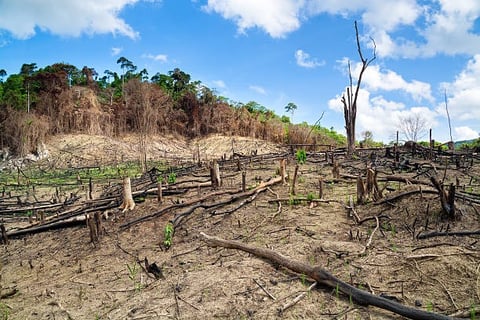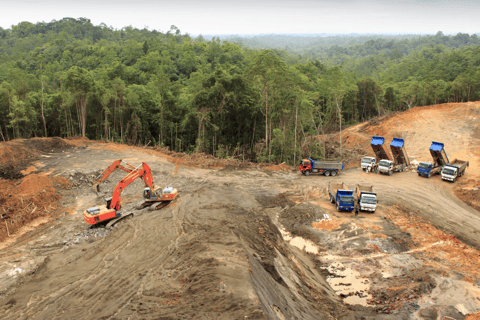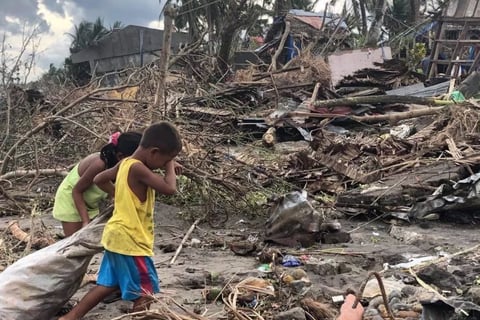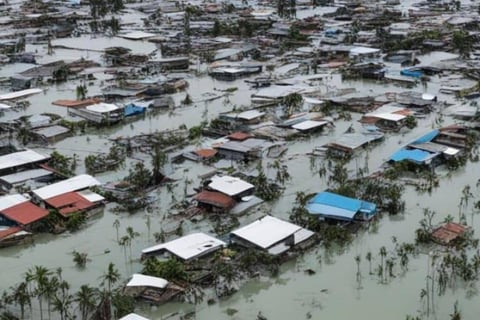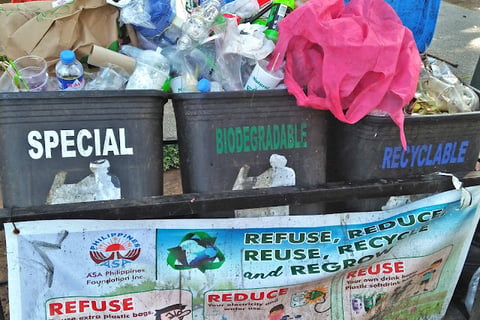Environmental
Deforestation in the Philippines: Past vs. Present
The Philippines has long struggled with deforestation; widespread logging, agricultural growth, and infrastructure projects caused significant forest loss starting in the 20th century. Deforestation peaked in the 1970s, lowering the amount of forest cover from 70% in the 1900s to only roughly 24% in the 1990s. Deforestation is still a problem today, even with initiatives like reforestation projects like the National Greening Program (NGP), which was founded in 2011 and seeks to replace 1.5 billion trees by 2028. Unsustainable land use practices, agricultural conversion, and illegal logging continue to be major causes of forest loss. Between 2001 and 2020 alone, about 10% of the forest cover was lost in recent years.
FUTURE: 2030
According to Daipan B. P. (2021) , by 2030, the Philippines may lose 331,000 hectares of forest without significant changes in deforestation management strategies. The study emphasizes the importance of near-real-time monitoring of forest habitats to evaluate the effectiveness of governance efforts in these critical areas, providing essential data to improve forest protection practices. (https://threatenedtaxa.org/index.php/JoTT/article/view/6904)
(By Climate Advisers)
Climate Change: Then and Now
The Philippines has been vulnerable to climate change for decades due to its geographic location. Typhoons and flooding have historically been associated with climate-related issues. But over time, things have gotten worse. The Philippines is currently dealing with longer droughts, rising sea levels, and more frequent and severe storms. Deforestation and other environmental problems exacerbate these. The Philippines pushed for worldwide climate action, highlighting the nation's vulnerability in platforms such as the Paris Agreement. The nation has created plans such as the National Climate Change Action Plan (NCCAP) to increase environmental and community resilience, but resource constraints still make implementation difficult.
FUTURE: 2030
According to the World Bank Group (2021), the Philippines is expected to face escalating climate change impacts by 2030, including rising temperatures, stronger typhoons, sea level rise, and unpredictable precipitation patterns. These shifts are likely to increase the frequency and intensity of natural disasters, intensifying risks like flooding, landslides, and storm surges, particularly in vulnerable coastal and low-lying regions. These environmental pressures will place significant strain on communities, infrastructure, and local economies across the country. (https://climateknowledgeportal.worldbank.org/sites/default/files/2021-08/15852-WB_Philippines%20Country%20Profile-WEB.pdf)
Photograph: Saeed Khan
RA 9003 old law compare to New Law enacted today
Republic Act No. 9003 (2000) - Ecological Solid Waste Management Act: The law mandated local government units (LGUs) to implement waste segregation, recycling, and proper disposal practices, aiming to reduce waste at the source and promote environmental sustainability
Republic Act No. 11898 (2022) - Extended Producer Responsibility Act: This law requires manufacturers and importers of plastic products to establish systems for collecting and recycling their products, thus promoting accountability for plastic waste generation.
FUTURE: 2030
By 2030, the Philippines’ Ecological Solid Waste Management Act of 2000 (RA 9003) is likely to encounter heightened challenges and the need for reforms due to increasing waste production and mounting environmental pressures. Forecasts suggest a 39.9% surge in waste generation compared to 2014, with the annual volume projected to reach 20.51 million metric tons by 2030. This growth in waste emphasizes the need for stronger execution of RA 9003, which requires local governments to implement waste segregation, establish materials recovery facilities (MRFs), and maintain sanitary landfills. However, implementation remains uneven, as only about 30% of barangays currently have adequate waste segregation and MRF infrastructure. (Business World (2024), Philippines Graphic (2021). https://www.bworldonline.com/science-environment/2024/09/20/622909/solid-waste-management-a-top-sustainability-issue-eccp-says/ | https://philippinesgraphic.com.ph/2021/05/14/possibilities-for-a-brighter-future-achieving-zero-waste-by-2030/
(BY EcoWaste Coalition)
REFERENCE:
https://www.green.earth/blog/the-philippines-battle-against-deforestation-progress-and-challenges
(https://www.globalforestwatch.org/dashboards/country/PHL/ )
https://threatenedtaxa.org/index.php/JoTT/article/view/6904
